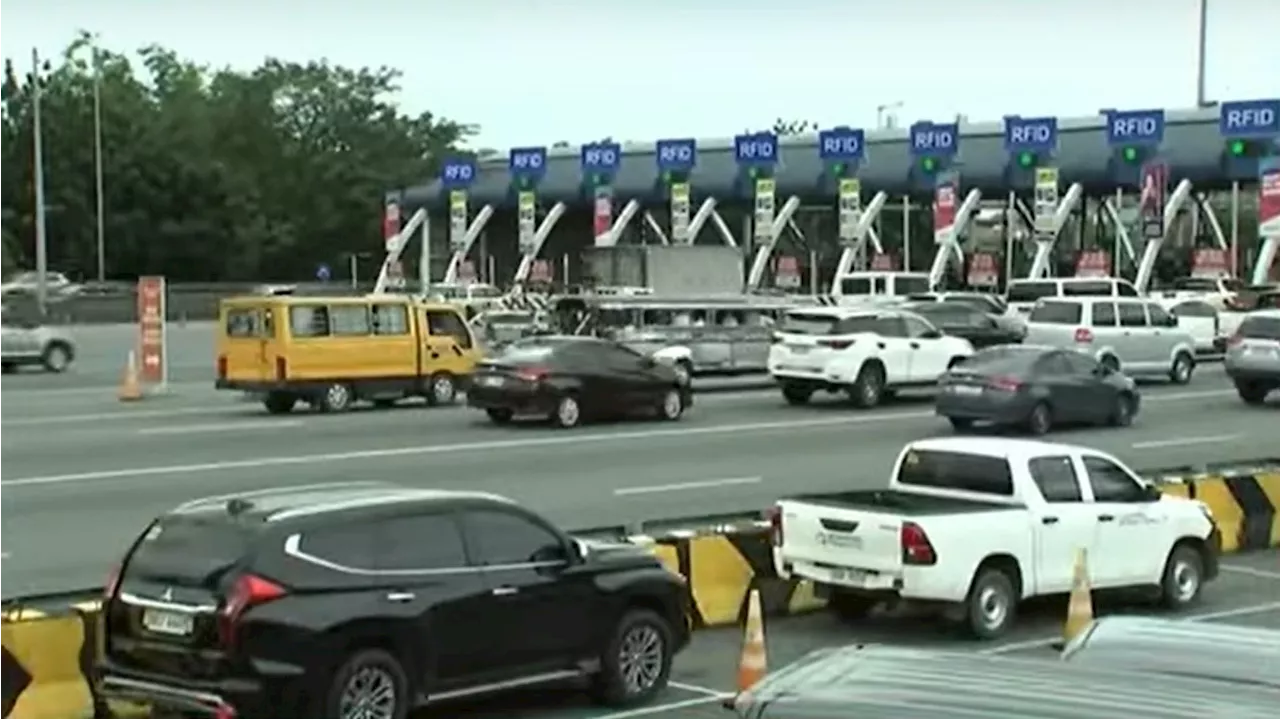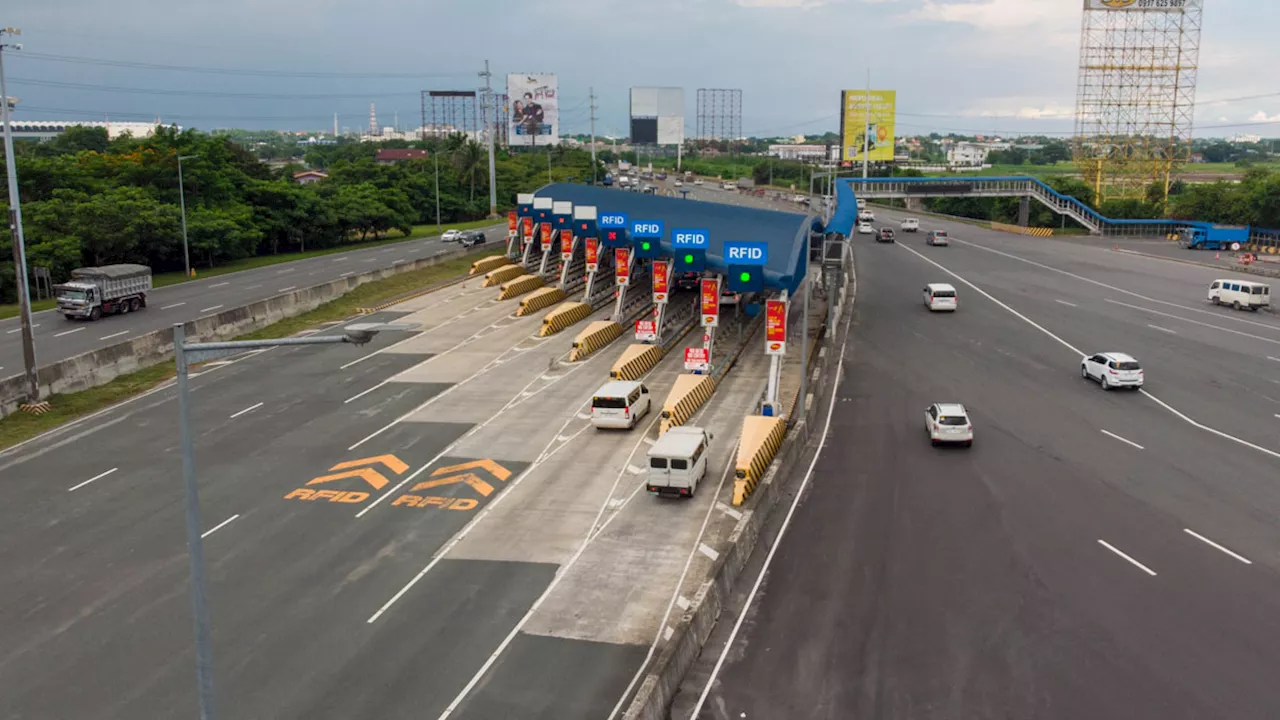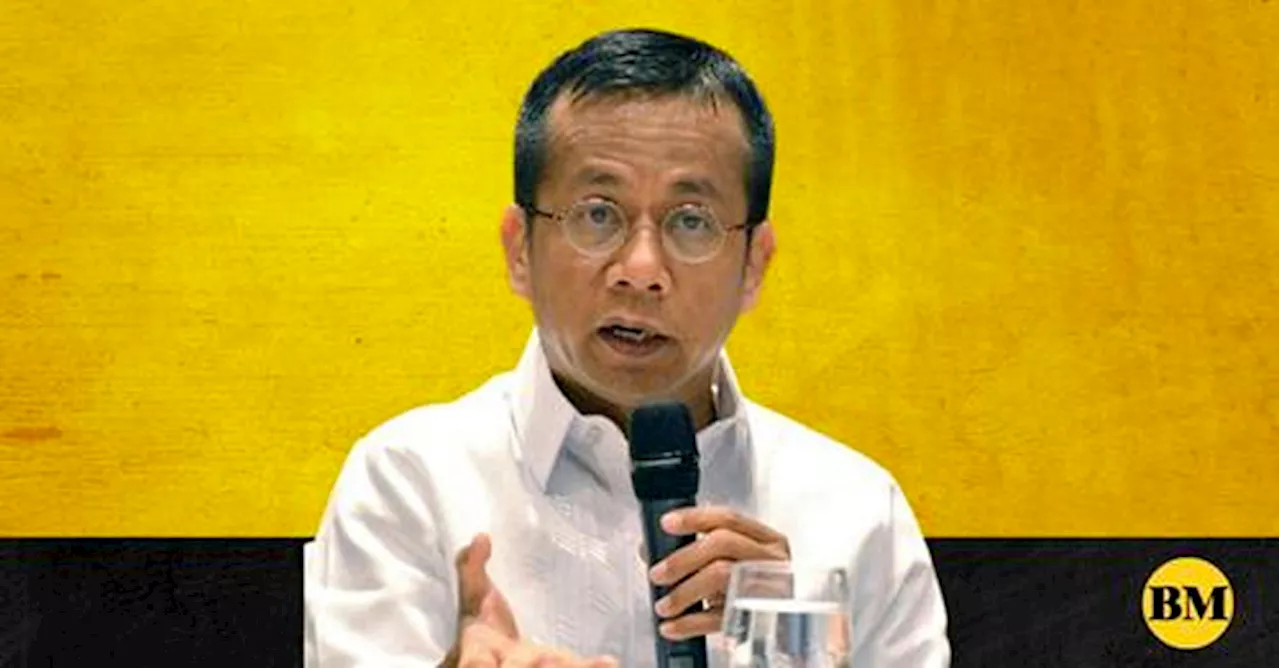The Philippines is set to re-implement its Cashless/Contactless Toll Collection Policy on March 15th, 2024, following months of dry-run testing. This policy, jointly enforced by the Department of Transportation (DOTr), Land Transportation Office (LTO), and Toll Regulatory Board (TRB), mandates the use of Electronic Toll Collection (ETC) systems across all expressways. Motorists are required to have a valid ETC device or Radio Frequency Identification (RFID) sticker installed on their vehicles to avoid fines. The policy aims to optimize traffic flow and reduce congestion at toll plazas.
The Philippines ' toll concessionaires have collectively endorsed the government's initiative to re-implement the Cashless/Contactless Toll Collection Policy, set to commence in March. This policy, formalized through Joint Memorandum Circular No. 2024-001 by the Department of Transportation (DOTr), Land Transportation Office ( LTO ), and Toll Regulatory Board ( TRB ), mandates the use of Electronic Toll Collection ( ETC ) systems across all expressways.
The TRB emphasized that toll expressway users are required to have a valid ETC device or Radio Frequency Identification (RFID) sticker installed on their vehicles. Motor vehicles without a valid ETC device/RFID sticker will be allowed entry into the toll lane/plaza and will have an ETC device/RFID sticker installed upon passage. However, these vehicles will be issued a Temporary Operator’s Permit or a Show Cause Order for violating the “No Valid ETC Device, No Entry” policy. The LTO, through its deputized personnel, will enforce this policy, imposing the following fines: P1,000 for the first offense; P2,000 for the second offense, and P5,000 for subsequent offenses. Additionally, motorists exiting toll expressways with insufficient balance will be fined P500 for the first offense, P1,000 for the second, and P2,500 for subsequent offenses. “Dedicated toll lanes used by cash-paying motorists are usually congested with long lines of motor vehicles, and the same often hamper the fast and efficient flow of traffic leading to the ETC designated lanes,” the TRB said. The push for cashless toll collection began in December 2020, aiming to reduce physical contact and improve traffic flow at the height of the pandemic. However, initial implementation faced challenges, including technical issues and public resistance, leading to its suspension. In September 2023, the TRB initiated extensive dry runs to address these concerns, refine the system, and increase public awareness, paving the way for the upcoming full implementation. Per the latest TRB data, 97 percent of expressway users have adopted RFID stickers for toll payments. Toll operators are now focusing on the remaining 3 percent of motorists who continue to pay in cash, urging them to transition to RFID for a more seamless travel experience. Toll operators, San Miguel Corp., Metro Pacific Tollways Corp., MCX Tollway Inc., Bases Conversion and Development Authority (BCDA), and Philippine Reclamation Authority (PRA), have expressed their commitment to the initiative. “This policy plays a key role in easing traffic at toll plazas, improving safety and convenience for motorists, and optimizing expressway operations,” the toll operators said. Obtaining an RFID sticker is straightforward and free of charge, with no maintaining balance required. Motorists can reload their accounts through various channels, including customer service centers, kiosks, banks, e-wallets, and other payment platforms. To ensure timely updates on transactions, users are encouraged to provide current contact information, including email and mobile numbers. Official RFID mobile apps are also available for quick balance checks, reloading, and toll fee calculations.
Cashless Toll Collection RFID ETC Philippines Dotr LTO TRB Toll Expressways Traffic Flow Safety Convenience
Philippines Latest News, Philippines Headlines
Similar News:You can also read news stories similar to this one that we have collected from other news sources.
 Philippines to Reimplement Cashless Toll Collection on All Expressways in 2025The Toll Regulatory Board (TRB) is bringing back cashless toll collection on all Philippine expressways starting March 15, 2025. Motorists will be required to have a valid Electronic Toll Collection (ETC) device or Radio Frequency Identification (RFID) sticker installed on their vehicles. The program was initially launched in 2020 but was temporarily suspended due to operational issues. The TRB aims to optimize toll lane usage and improve traffic flow with this initiative.
Philippines to Reimplement Cashless Toll Collection on All Expressways in 2025The Toll Regulatory Board (TRB) is bringing back cashless toll collection on all Philippine expressways starting March 15, 2025. Motorists will be required to have a valid Electronic Toll Collection (ETC) device or Radio Frequency Identification (RFID) sticker installed on their vehicles. The program was initially launched in 2020 but was temporarily suspended due to operational issues. The TRB aims to optimize toll lane usage and improve traffic flow with this initiative.
Read more »
 Philippines to Implement Cashless Toll Collection on Luzon Expressways Starting March 15thThe Department of Transportation (DOTr) announced that cashless toll collection will be mandatory on all major tollways in Luzon starting March 15th, 2024. Motorists must have a valid Electronic Toll Collection (ETC) device or Radio Frequency Identification (RFID) sticker installed on their vehicles to avoid delays at toll plazas.
Philippines to Implement Cashless Toll Collection on Luzon Expressways Starting March 15thThe Department of Transportation (DOTr) announced that cashless toll collection will be mandatory on all major tollways in Luzon starting March 15th, 2024. Motorists must have a valid Electronic Toll Collection (ETC) device or Radio Frequency Identification (RFID) sticker installed on their vehicles to avoid delays at toll plazas.
Read more »
 Analyst Urges Philippines to Seek Independent Foreign Policy Amid Trump's 'America First' AgendaA political analyst from the University of the Philippines advises the Philippines to pursue an independent foreign policy and lessen its reliance on the United States in light of President Donald Trump's 'America First' policies. He emphasizes the need for the Philippines to be prepared for potential geopolitical shifts and to diversify its relationships beyond the US.
Analyst Urges Philippines to Seek Independent Foreign Policy Amid Trump's 'America First' AgendaA political analyst from the University of the Philippines advises the Philippines to pursue an independent foreign policy and lessen its reliance on the United States in light of President Donald Trump's 'America First' policies. He emphasizes the need for the Philippines to be prepared for potential geopolitical shifts and to diversify its relationships beyond the US.
Read more »
 Philippines has no specific textile circularity policyTHE Philippines has yet to establish a specific policy on circularity in the textile industry, but the Board of Investments (BOI) is pushing for sustainability initiatives through existing programs and incentives.
Philippines has no specific textile circularity policyTHE Philippines has yet to establish a specific policy on circularity in the textile industry, but the Board of Investments (BOI) is pushing for sustainability initiatives through existing programs and incentives.
Read more »
 Philippines BIR Sets Record Tax Collection, Eyes 2025 Target with Digitalization DriveThe Bureau of Internal Revenue (BIR) of the Philippines achieved its highest-ever tax collection in 2024, exceeding P2.86 trillion. Driven by intensified compliance efforts and a comprehensive digitalization strategy, the BIR is confident in its ability to meet its 2025 target.
Philippines BIR Sets Record Tax Collection, Eyes 2025 Target with Digitalization DriveThe Bureau of Internal Revenue (BIR) of the Philippines achieved its highest-ever tax collection in 2024, exceeding P2.86 trillion. Driven by intensified compliance efforts and a comprehensive digitalization strategy, the BIR is confident in its ability to meet its 2025 target.
Read more »
 Competition Policy Crucial For Food Security in the PhilippinesThe National Economic and Development Authority (Neda) warns that uncompetitive practices hinder the Philippines' food security goals. Socioeconomic Planning Secretary Arsenio Balisacan emphasizes the importance of procompetitive policies, regulations, and programs to combat hunger. He stresses the need for fair market competition in agricultural inputs, storage, logistics, and distribution to drive efficiency, innovation, and benefit consumers. Balisacan highlights the government's recent efforts to control food inflation, including lowering rice tariffs and removing non-tariff barriers to encourage local food supplies.
Competition Policy Crucial For Food Security in the PhilippinesThe National Economic and Development Authority (Neda) warns that uncompetitive practices hinder the Philippines' food security goals. Socioeconomic Planning Secretary Arsenio Balisacan emphasizes the importance of procompetitive policies, regulations, and programs to combat hunger. He stresses the need for fair market competition in agricultural inputs, storage, logistics, and distribution to drive efficiency, innovation, and benefit consumers. Balisacan highlights the government's recent efforts to control food inflation, including lowering rice tariffs and removing non-tariff barriers to encourage local food supplies.
Read more »
